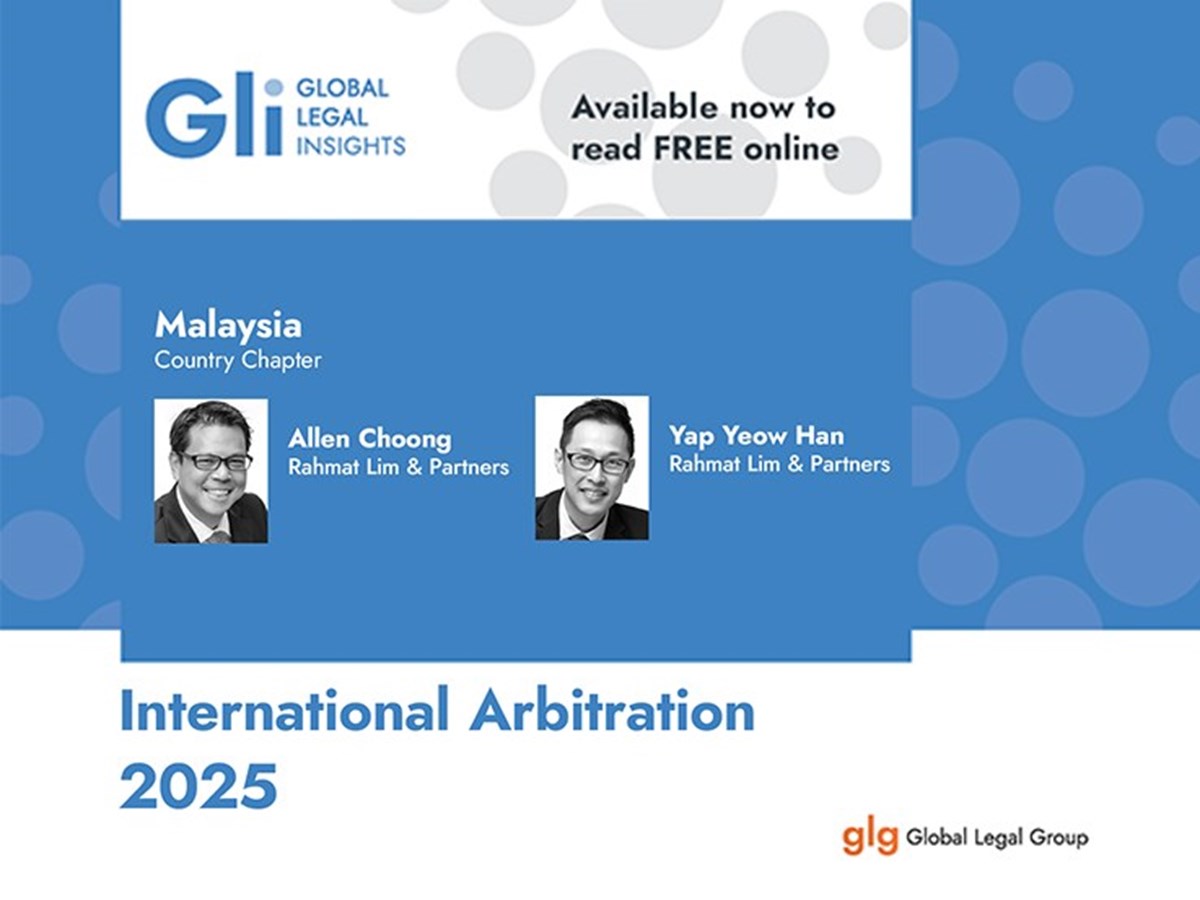
Knowledge Highlights 10 April 2025

The Court of Appeal in Export-Import Bank of Malaysia Berhad v Sun Holding (Sun Park Hotel) Co Ltd & Ors (Civil Appeal No: N-02(W)-579-04/2022) considered whether a counterclaim by a borrower against a financial institution for negligence under a facilities agreement governed by the law of the Lao People’s Democratic Republic (“Lao PDR”) attracted the application of the double actionability rule in determining if the claim was actionable.
The application of the double actionability rule would require the counterclaim to be actionable both under the law of Lao PDR as well as the law of Malaysia, being the jurisdiction where the action is brought. A plaintiff bringing an action for a tort occurring in a foreign country must show that the tort is (a) actionable as such by the laws of the forum, had the tort occurred within the forum court’s jurisdiction (“1st Limb”); and (b) also actionable by the laws of the foreign country where the tort is said to have occurred (“2nd Limb”).
This article provides an overview of the court’s decision.
Snapshot
The case centres around the loan financing of USD14,000,000 granted by Export-Import Bank of Malaysia Berhad (“Lender”) to Sun Holding (Sun Park Hotel) Co Ltd (“Borrower”) for the development of a hotel and tourist complex in Lao PDR. The land designated for the development (“Secured Property”) and various properties in Malaysia were earmarked as security for the loan in favour of the Lender. The loan agreement was subsequently terminated as a result of default in September 2009, despite the restructuring of the loan and the provision of an additional loan.
In 2010, the Lender exercised its power of sale over the Secured Property and commenced claims against the Borrower and other guarantors in Malaysia for the outstanding amount owed under the loans.
The Borrower counterclaimed for breach of duty of care in respect of the Lender’s alleged undervalued disposal of the security for the loans.
Judgment of the High Court
The High Court, among other things, allowed the Borrower’s counterclaim and ordered a fresh valuation of the Secured Property to determine its market value so as to ascertain the direct loss caused by the Lender’s undervaluataion of the Secured Property at the time of sale.
The High Court applied English common law principles on negligence and duty of care, and in essence, assumed that the same principles of tort on duty of care existed under the law of Lao PDR.
Judgment of the Court of Appeal
On appeal by the Lender, the Court of Appeal observed the continued application in Malaysia of the double actionability rule affirmed in Boys v Chaplin [1971] AC 356 by virtue of section 3 of the Civil Law Act 1956.
The court held that in pursuit of its counterclaim, the Borrower bore the duty of proving that its counterclaim was sustainable under the law of Lao PDR. The Borrower was observed to have failed to satisfy the double actionability rule as they had failed to lead evidence on the law of the tort of negligence under the law of Lao PDR during the High Court proceedings. The High Court’s decision was found to have been wrongly decided for not applying the law of Lao PDR as the applicable law, as the double actionability rule required the Borrower to establish that there was a duty of care on the part of the Lender under the law of Lao PDR.
The court also made the following observations:
Comment
This case firmly establishes that the double actionability rule continues to apply as a rule of jurisdiction and choice of law in Malaysia.
However, the court’s decision appears to have imposed an obligation on the plaintiff to establish the 2nd Limb of the double actionability rule in order to maintain an action in Malaysia for a tort that occurred in a foreign jurisdiction.
The double actionability rule exists primarily for the benefit of the defendant, whose burden it should be to raise the defence or objection and to prove the difference in the actionability of the tort under the laws of the forum court and the law of the place where the tort occurred.
The approach of the Court of Appeal may not be practicable as the double actionability rule is usually invoked as a defence or jurisdictional objection, and the defendant, in reliance of the defence or objection, is usually required by the rules of pleadings and evidence to establish that the tort is not actionable at the lex loci delicti (place where the tort occurred).
The court’s decision appears to depart from the conventional approach that a party relying on a fact of foreign law as a defence is required to plead and prove the same.
This article was prepared with the assistance of Senior Associate Melvin Ng.